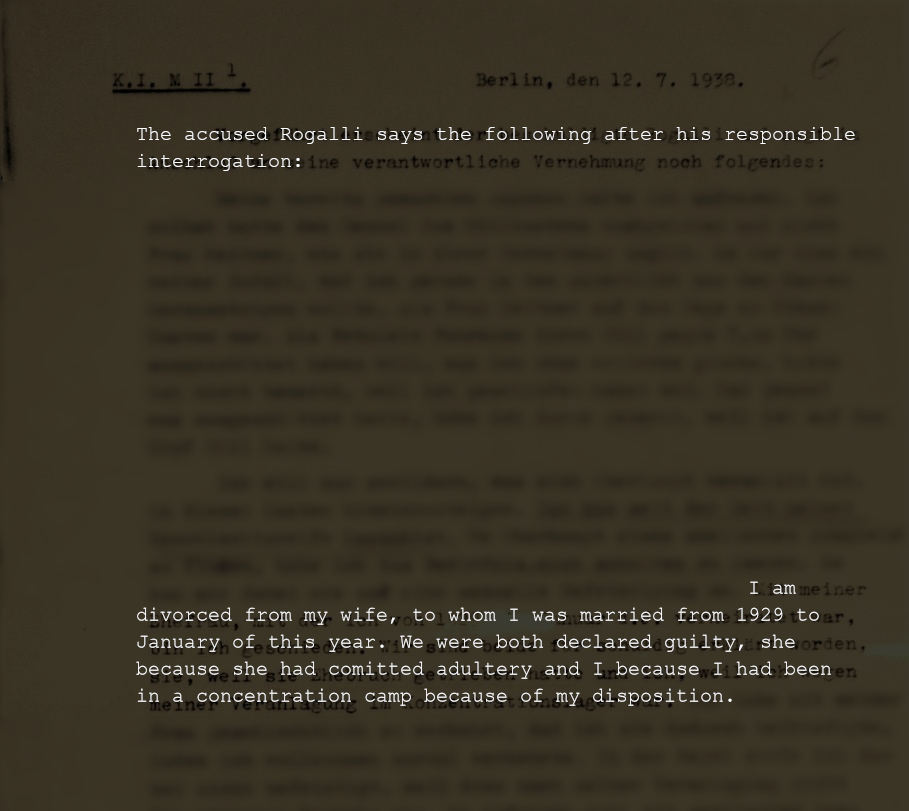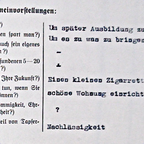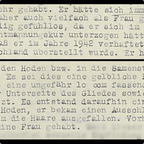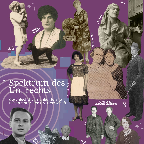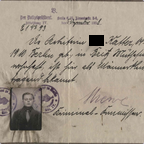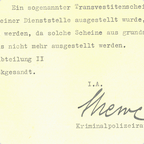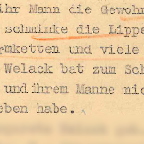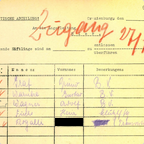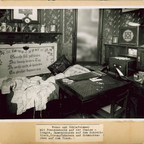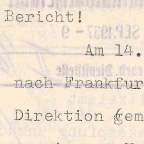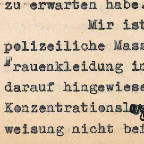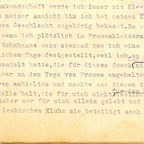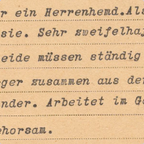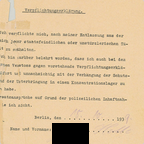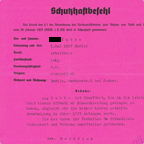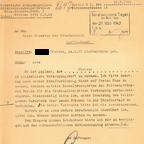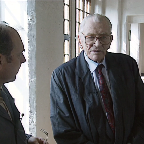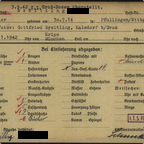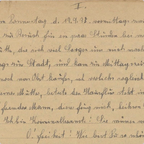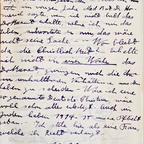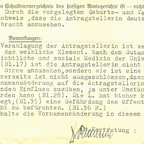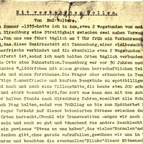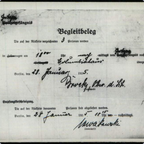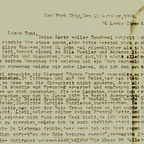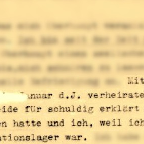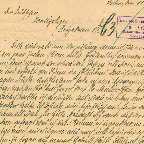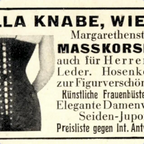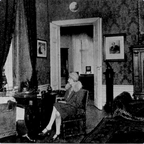Disadvantage in Family Law Matters
![Excerpt of police protocoll typed with typewriter: K. I. M II 1. Berlin, July 12, 1938. The accused Rogalli says the following after his responsible interrogation: [some text passages made unrecognizable by the curation] I am divorced from my wife, to whom I was married from 1929 to January of this year. We were both declared guilty, she because she had committed adultery and I because I was in a concentration camp because of my disposition.](/media/images/Rogalli_Scheidung3.scale-100.jpegquality-100.png)
© Berlin State Archives.
Excerpt from an interrogation protocol about Käte Rogalli
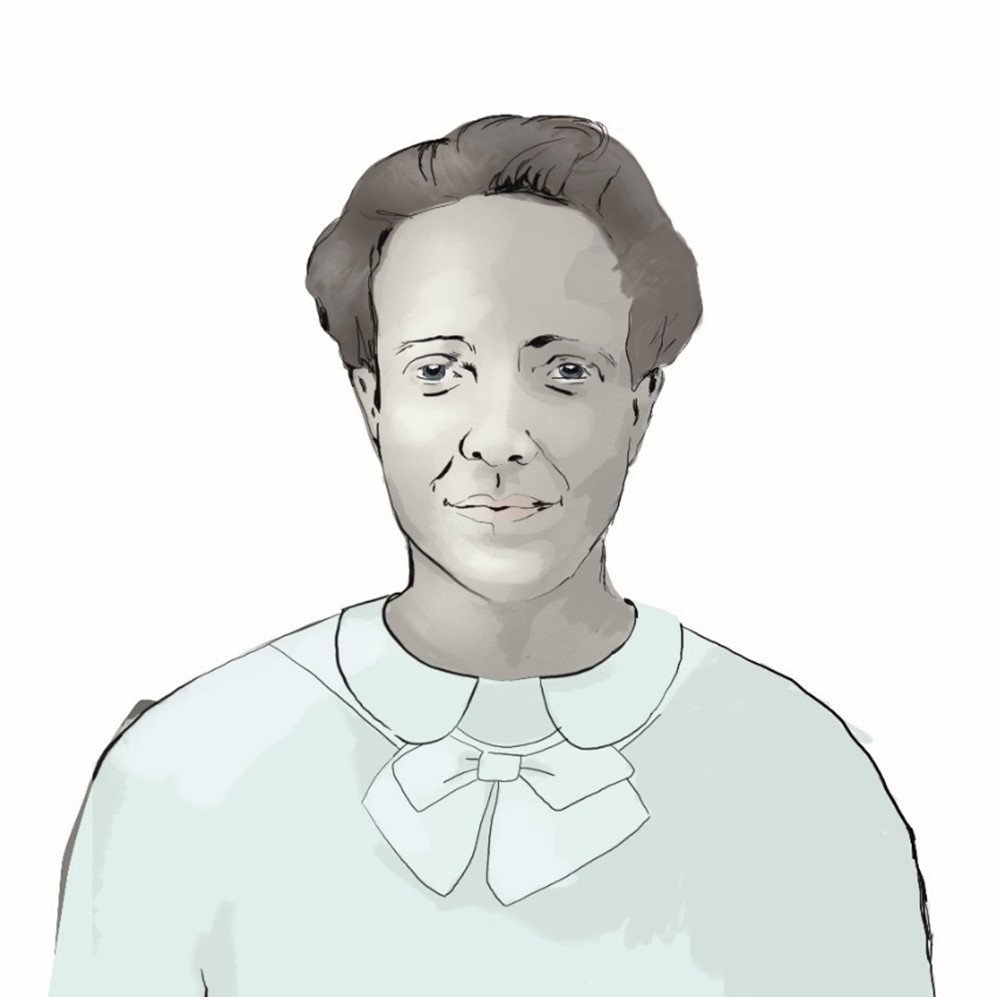
© drawing by Tomka Weiß
Content note: In this text suicide is mentioned.
This excerpt is taken from a police report of an interrogation of the transfeminine Käte Rogalli. In it her disadvantage during the court case of her divorce is described. Her wife had apparently committed adultery. Nonetheless the judge thought of Käte as partly responsible for the divorce, due to having been imprisoned in a concentration camp for several months because of her transness.
When Käte was held in a psychiatric hospital a few years later, she described to a doctor that her own mother had written letters to the youth welfare office to ensure that her custody of her children was withdrawn. She took her own life in the psychiatry on April 11, 1943.
In family law matters, such as marriages, divorces, inheritance and custody disputes, gender nonconforming people could be disadvantaged. Their gender presentation, gender identity and bodies were often viewed as immoral. Some doctors even believed that they should be excluded from reproduction in the so-called "Volkskörper” (national body).

